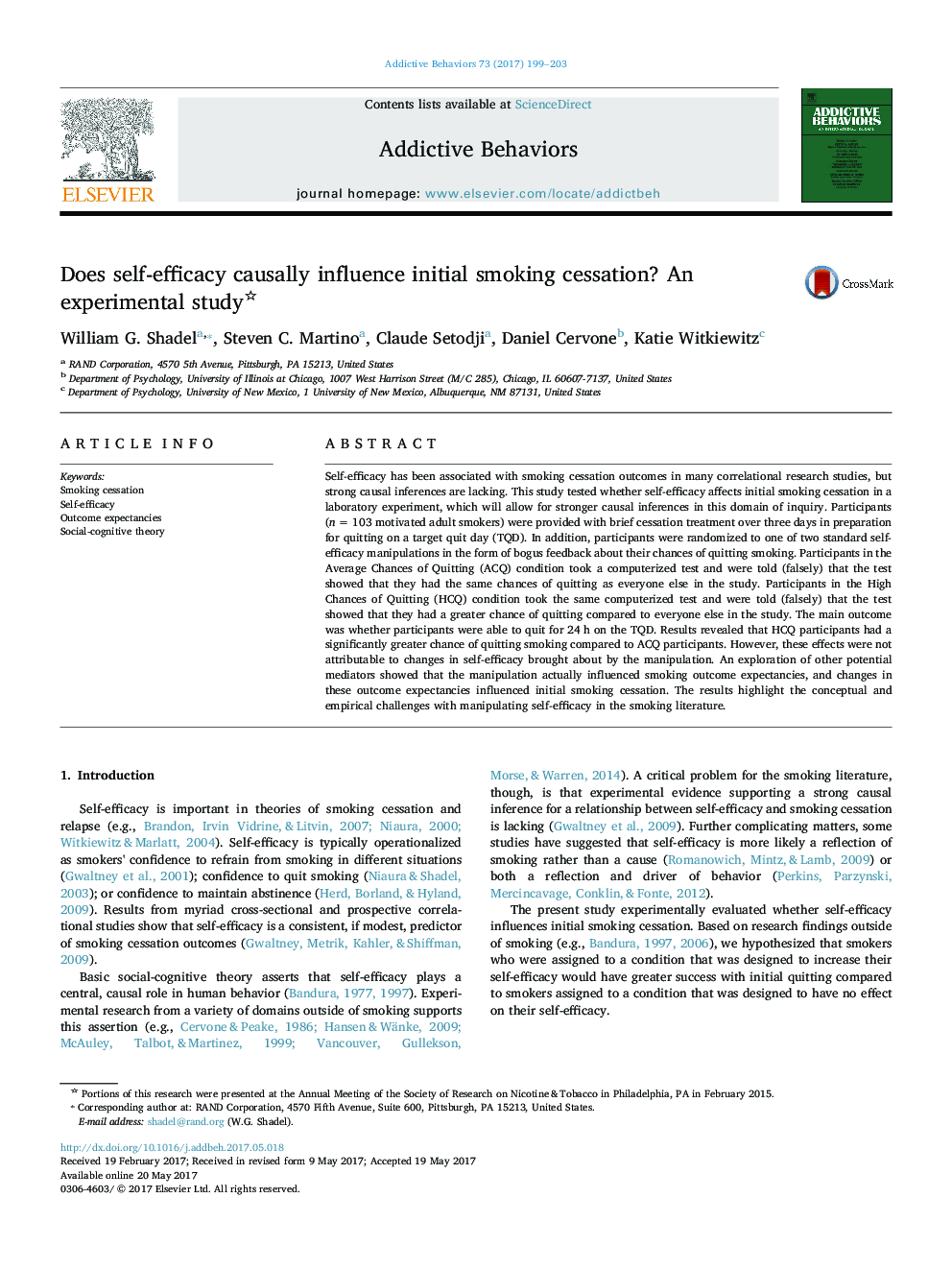| کد مقاله | کد نشریه | سال انتشار | مقاله انگلیسی | نسخه تمام متن |
|---|---|---|---|---|
| 5037579 | 1472498 | 2017 | 5 صفحه PDF | دانلود رایگان |

- An experimental test of whether self-efficacy causally influences initial smoking cessation was conducted.
- Although the manipulation influenced initial smoking cessation, self-efficacy did not mediate these effects.
- Smoking outcome expectancies mediated the effects of the experimental manipulation on smoking cessation.
- These results highlight the challenges of experimentally studying self-efficacy in the context of smoking cessation.
Self-efficacy has been associated with smoking cessation outcomes in many correlational research studies, but strong causal inferences are lacking. This study tested whether self-efficacy affects initial smoking cessation in a laboratory experiment, which will allow for stronger causal inferences in this domain of inquiry. Participants (n = 103 motivated adult smokers) were provided with brief cessation treatment over three days in preparation for quitting on a target quit day (TQD). In addition, participants were randomized to one of two standard self-efficacy manipulations in the form of bogus feedback about their chances of quitting smoking. Participants in the Average Chances of Quitting (ACQ) condition took a computerized test and were told (falsely) that the test showed that they had the same chances of quitting as everyone else in the study. Participants in the High Chances of Quitting (HCQ) condition took the same computerized test and were told (falsely) that the test showed that they had a greater chance of quitting compared to everyone else in the study. The main outcome was whether participants were able to quit for 24 h on the TQD. Results revealed that HCQ participants had a significantly greater chance of quitting smoking compared to ACQ participants. However, these effects were not attributable to changes in self-efficacy brought about by the manipulation. An exploration of other potential mediators showed that the manipulation actually influenced smoking outcome expectancies, and changes in these outcome expectancies influenced initial smoking cessation. The results highlight the conceptual and empirical challenges with manipulating self-efficacy in the smoking literature.
Journal: Addictive Behaviors - Volume 73, October 2017, Pages 199-203